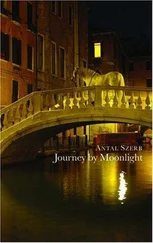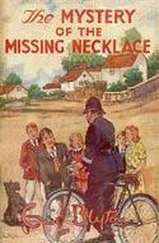But the fact that the same sort of audience went to the Academy as did to the theatre shows that the great institution had lost none of its prestige during these years, and was by no means isolated from the literary life of the day. Earlier, in the middle of the century, far from being a conservative, traditionalist body, it had been a meeting place for revolutionary spirits, entirely under the control of the philosophes , the collaborators on the great Encyclopédie , at war with the Church and the Sorbonne. Since all the Encyclopedists were also members of the salons, the world of women followed the Academy’s elections and proceedings with the greatest of interest. It was genuinely part of the monde , of aristocratic society, as were the Comédie Française and the Comédie Italienne.
By the end of the century the Academy had lost none of its relevance, but the original group of philosophes were no longer in the vanguard. As with all sects, persecution (imprisonment, the burning of their books and banishment) had simply made them stronger. But although official harassment continued until the end of the century, it had by then become something of a game, final proof of the saying that “the monarchy forbade everything and could prevent nothing”. For example, Brissot would be forewarned by the official responsible that his current pamphlet was to be confiscated; the copies would then be seized and sold on the black market by the same official’s wife. The Abbé Morelle, imprisoned in the Bastille for his writings, was comforted by his supporters with the thought that he should regard it as a welcome form of publicity. Morelle thought so too, and the calculation proved correct. Even the Church could no longer stand up to the philosophes in the decisive way it once had done. Fashionable preachers such as the Academician the Abbé Boismont did not try to refute their teachings — they merely insisted that the God of the Christian religion was rather more likely to inspire benevolent feelings in the human heart than the cold and distant Supreme Being of the philosophes . When the Spanish translation of the Encyclopédie appeared, its first purchaser was Don Bertram, the Archbishop of Salamanca and Head of the Inquisition.
The Marquis de Condorcet, the man chosen to succeed D’Alembert as leader of the philosophes , made his speech of acceptance into the Academy in January 1782. He began: “The eighteenth century has so thoroughly perfected the system of human knowledge that there is no means whereby the new enlightenment could be extinguished, unless some universal catastrophe covered the human race once again in darkness.” The philosophes had won.
But, year by year, the great generation of the French Enlightenment were dying out. Voltaire went in 1778, after his triumphal return to the Paris from which he had been exiled for so many years. Two months later, his great adversary Rousseau died. In 1780 it was Condillac, in 1784 Diderot. In 1783 it was the leader of the philosophes , the director of the Encyclopédie and the Permanent Secretary of the Academy, D’Alembert himself.
It happens very rarely in literary history that one great generation is followed by another. The void left by the death of the great Encyclopedists could not be filled by their heirs. D’Alembert’s successor at the Academy was the hardworking, many-sided and inconsequential Marmontel, the literary populariser of the philosophes ’ ideas. Its greatest lyric poet was considered to be the Abbé Delille — perhaps because he behaved as a poet was expected to, was permanently distracted and dreamy and “was forever letting himself go at the feet of some pretty girl”, as we might colloquially but faithfully translate Grimm’s phrase, so expressive as it is of the times. His great rival, as we have mentioned, was the leading critic of the age, La Harpe. La Harpe was a timid conservative who extolled everything from the past and pronounced everything that was antiquated in classical French literature to be ‘correct’. He was an outstanding example of the French literary pedant, a proponent of that schoolmasterly deference to the bookish ‘rules’ that foreigners always find so surprising. La Harpe had been a French tutor to Grand Prince Paul Petrovics, the son of Catherine the Great. When the Grand Prince was in Paris, La Harpe would pay his respects every time the Grand Prince showed an inclination to receive him. Finally La Harpe announced:
“I have discussed the art of ruling with him on two separate occasions, and I can assure you that I found him most satisfactory.” (There were a great many reasons why this could not have been true: Paul I, as he became, was the stupidest and most timid of all the stupid and timid Russian Tsars.)
Although the most severe of critics, La Harpe could not bear to be criticised himself. After the press had savaged his play Les brames , he petitioned the Keeper of the Seal to ban the newspapers from commenting on his new plays before a certain number of performances had taken place, to stop the audiences from staying away — a playwright’s dream that has never yet come to pass.
La Harpe was not a great poet, but he was one of the most representative people of his time. There was only one great poet alive in France in this period, and he was certainly not typical of his age, nor had anyone heard of him. This was André Chénier, who was to die young on the revolutionary scaffold. In Chénier the chrysea phormix Apolonos was heard again: the golden lute of Apollo, the glory of Ancient Greece. The oldest voice is always the newest, and Chénier is much more modern to our ears than any other poet of his century. We feel instantly at home in his verses. They are the lyre that will sound again in the work of Baudelaire and Verlaine. We cannot refrain from quoting a few lines to show how very fine his voice is, and how little dated. The extract is from an allegorical poem about a queen — perhaps he was thinking of Marie-Antoinette, so the passage is not unconnected with our theme:
Sur la frivolité
Mère du vain caprice et du léger prestige,
La Fantasie ailée autour d’elle voltige …
La déesse jamais ne connut d’autre guide.
Les rêves transparents, troupe vaine et fluide,
D’un vol étincelant caressent ses lambris …
La reine, en cette cour, qu’anime la Folie,
Va, vient, chant, se tait, regarde, écoute, oublie.
Et dans mille cristaux, qui portent son palais,
Rit de voir mille fois étinceler ses traits.
Frivolity — mother of shallow Caprice and empty Prestige, with winged Fantasy flitting around her, the only guide this goddess has ever known … In this court, so animated by Folly, transparent dreams, fluid and insubstantial, flicker caressingly over the marble panels as the Queen comes and goes, breaks into song, falls silent, stares, listens, forgets … then, seeing her face reflected a thousand times in the thousand mirrors that hang in the palace, erupts into laughter.
While French literature was moving into decline at home, the cult of French wit was reaching its zenith abroad. Count Haga was not an isolated phenomenon — the whole of Europe was just a larger version of him. To be a cultured person was to be like the French. Their language was as much a world language as Latin had once been. The Berlin Academy launched a competition under the heading “The Universality of the French Language”. It was won by the youthful, mad and faux-mad (for so he proclaimed himself) ‘Count’ Rivarol. The motto of his winning entry was: Tu regere eloquio populus, o Galle, memento —Remember, Gaul, that your calling is to rule all Europe by your eloquence.
Читать дальше












